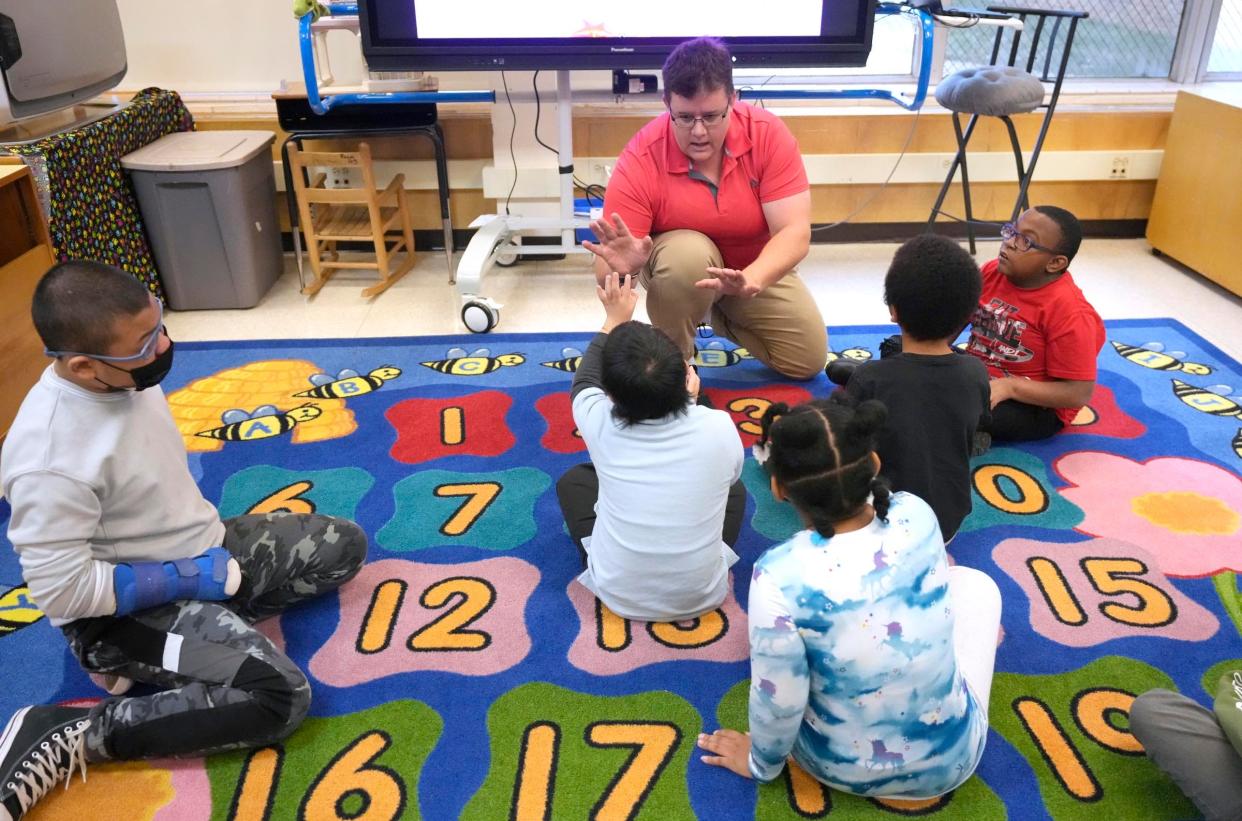To fill Milwaukee special education teacher jobs, program pays for master's at UW-Madison

It’s no secret: Teacher jobs need filling, especially in special education. And especially in Milwaukee Public Schools, which currently has 48 open jobs for special education teachers.
A new collaboration aims to fill those needs, covering the cost of an in-state resident's master’s degree in special education at the University of Wisconsin-Madison for 36 people who agree to eventually work in an MPS school. In addition, those in the program receive a $46,500 stipend for the school year they spend taking classes and working in a Milwaukee classroom alongside their mentor, an experienced special education teacher.
The UW–Madison Special Education Teacher Residency Program comes with a commitment: three years working in MPS after finishing the master’s. Those teachers continue receiving mentorship and guidance for at least the first two years of teaching after finishing the degree.
“We’re trying to make it as attractive and as doable as possible,” said Kimber Wilkerson, a UW-Madison professor who oversees the program. “We don’t want finances to be the reason that someone decides not to do it.”
Wilkerson said the stipend is designed to provide living expenses, given time commitments of the master's and teaching schedule that make working even a part-time job difficult. The figure is slightly less than what a first-year master’s-level special education teacher would make in the district, she said.
The program began accepting applications Nov. 1 for a cohort that will begin the master's this summer. It's the second wave of the UW special education residency. The first, launched in 2018, focused on sending special education teachers to small, rural school districts across Wisconsin. That time around, not all of the spots were filled, Wilkerson said.
“The (applications) we get are high quality, but we have to keep getting the word out,” she said.
More: Wisconsin will pay full tuition for people with disabilities who choose high-demand careers
Who is the program intended to recruit?
Because it’s intended to produce master’s-level teachers, applicants already need to have a bachelor’s degree. Otherwise, it’s open to anyone: current Milwaukee employees can apply, as can members of the public, even if they don’t have a background in education.
Wilkerson said the goal is to recruit from a mixture of Milwaukee district staff, like paraeducators, as well as external applicants such as recent college graduates or people changing careers.
The district has 167 teacher vacancies out of 4,920 teaching positions, said Michael Harris, the senior director of talent management. About 85% those teachers have teaching licenses, and the rest are on temporary licenses working toward them.
Harris said MPS generally recruits from several pools like historically Black colleges and universities, colleges in the area and Wisconsin, and even internationally. He said teacher preparation programs that include residency, or mentorship for an extended period of time, are the “gold standard."
"You get to really learn the pedagogy, the technique, the skill and watch a highly effective teacher do the work, ask questions and reflect on that," he said. "I think that's amazing. It questions, should all teacher prep programs be a resident model."
How do the program costs work?
Tuition for the master’s in special education at UW-Madison is covered through the Wisconsin Teacher Pledge. That program has a broader scope, covering tuition, licensing and fees for a range of teacher education costs through UW-Madison for graduates and undergraduates.
For the Teacher Pledge, the university applies a forgivable loan directly to the student’s account. The loan is forgiven in per-year increments as students work through their commitment to teach for three years in a high-need school or subject area or four years for non-high needs positions.
Students will be required to repay the loan if they don't finish the work committment. The full tuition of the special education master's program is about $20,000.
Residents are paid $46,500 for the year they spend working with their mentor in a classroom. Those mentors, who are chosen though an applicant process, receive $4,500 for the year they host a teacher. They are paid $750 for each of the mentee’s first two years teaching and receiving mentorship.
How is it funded?
Funding for the $46,500 stipend and other residency-specific parts of the program comes from a $3.2 million federal grant. The five-year grant, awarded in September, is from the U.S. Department of Education’s Teacher Quality Partnership Program.
The Teacher Pledge is funded through private donations. It has received over $26 million since it launched in 2020. So far, 756 people have enrolled in the program, about half of whom are already working in schools. The program has yet to reach a capacity limit, and has not run into funding limits for the number of teachers admitted.
What's the timeline for the teacher residency program?
Applications opened Nov. 1 at https://uwteacherresidency.org/.
The first cohort of 12 teachers is expected to begin this summer, then transition to the 2024-25 school year teaching with their mentor. Two more cohorts of 12 will repeat the process in summer 2025 and 2026, respectively.
Cleo Krejci covers higher education, vocational training and retraining as a Report For America corps member based at the Milwaukee Journal Sentinel. Contact her at CKrejci@gannett.com. Follow her on Twitter @_CleoKrejci. Support her work with a tax-deductible donation at bit.ly/RFADonation
This article originally appeared on Milwaukee Journal Sentinel: Teacher residency pays for special education master's at UW-Madison

